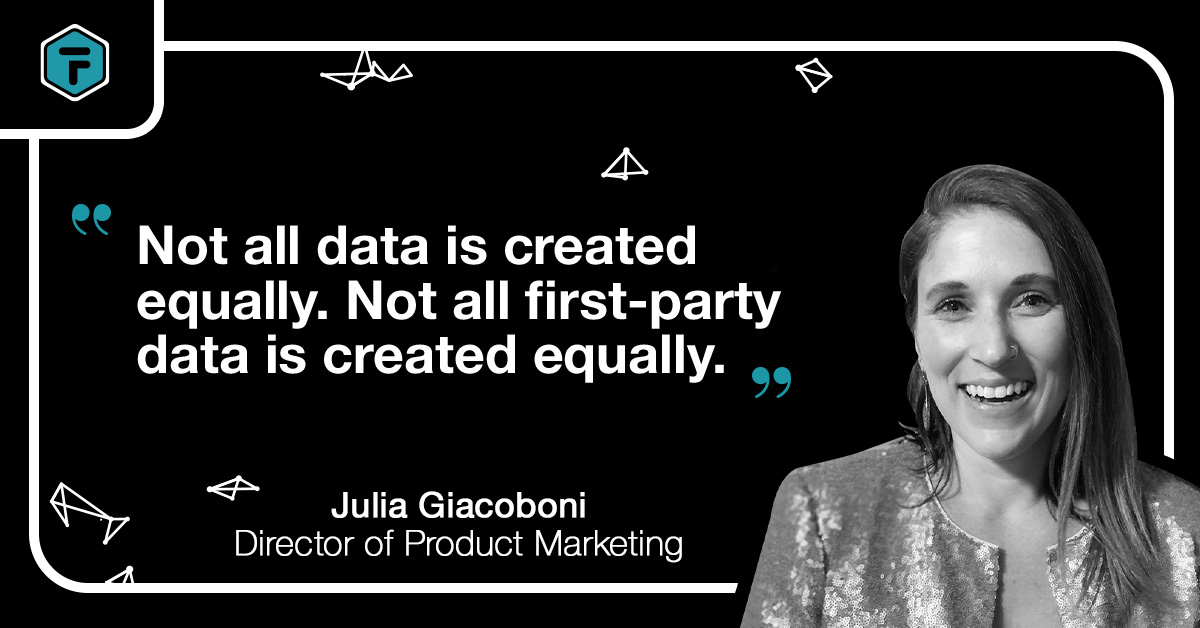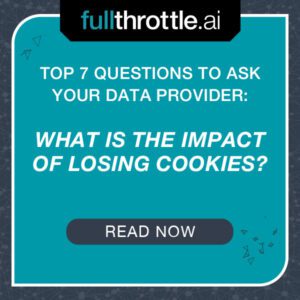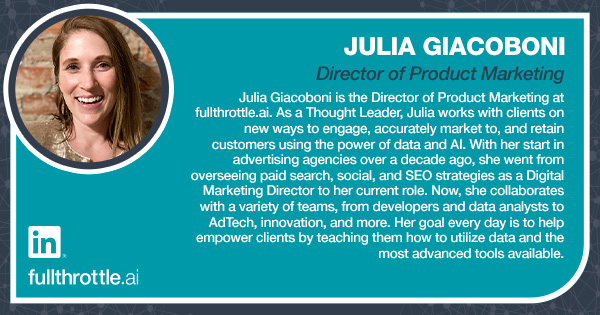
Top 7 Questions To Ask Your First-Party Data Provider: What Kind of Data Are You Providing Me?
by Julia Giacoboni, Director of Product Marketing
If you are looking for a data provider, it is important to ask several questions before partnering with anyone. We strongly recommend that you ask, “What kind of data are you providing me?”
Not all data is created equally. Not all first-party data is created equally. This is why it is important to ask your potential data provider about the data they are providing to you.
Some Follow-Up Questions
- What kind of data should you expect to get when you are working with a data provider?
- Where are they getting it from?
Another thing to keep in mind—first-party data is being collected from your own digital properties.
Be On Alert If...
The data provider mentions reliance on IP addresses or mobile IDs—this means they are using soon-to-be outdated technology.
Not only are cookies going away but so are a lot of the ways we’ve targeted. So, if they are banking on methods to get the data or places to grab the data that will soon be extinct, that is something to worry about.
You want to make sure that wherever they are getting the first-party data from is going to be future-proof and will last for a while. You want what you’re paying for to go the extra mile the whole time.
Why You Should Collect Household Data
Household data is the gold standard for first-party data. We do not want to focus on outdated technology. Your marketing is only going to benefit from having legitimate information in your reporting and from the people you are targeting.
Think about tracking transactions. Everything is related back to a household. Household data is going to be more detailed than third-party data ever was.
When you are talking to a data vendor, make sure you are getting examples of what the data is actually going to look like. Find out what it will look like on your end when you are activating it, using it, and adding it in campaigns.
Ask for a very clear understanding of the process: where it comes from, how they get it, and what kind of technology they are using.
Stay Away From...
Stay away from IP addresses or mobile IDs—that's the danger zone. You want to have legitimate customer information and know they obtained the information in a legitimate way.
Email PII
We know a lot of data is based around emails. However, it’s common for people to have more than one email address: work, personal, coupons, and subscriptions. Since people have multiple email addresses, they are very easy for marketing to burn through. You never know which one is being used.
This is why the household is a stable point of metrics to measure on. Once we have confirmed a household, it opens a whole world of Immersive Household® Marketing.
Immersive Household® Marketing
Once you have first-party, household data, it allows you to market to your customer’s entire household on ALL devices.
Immersive Household® is an always-on, instant marketing engine. Our fullthrottle.ai® engine automatically sends meaningful marketing messages to engage with your customers, motivating them to purchase. It delivers an Immersive Household® reach with digital display, social, audio, and video marketing.
Schedule your demo to see it in action.
To read more in this series, check them out here:
Top 7 Questions To Ask Your First-Party Data Provider
What Is The Impact of Losing Third-Party Cookies?
How Much Work Is This Going To Be for Me?






